|
|
|
Sort Order |
|
|
|
Items / Page
|
|
|
|
|
|
|
| Srl | Item |
| 1 |
ID:
138382
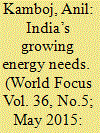

|
|
|
|
|
| Summary/Abstract |
Today, India has the fifth largest installed capacity worldwide for electricity. India’s energy mix is dependent mainly on coal, oil and gas which are the source of more than 70% power generation, most of which is imported. With this dependence expected to increase, the country needs assured access to imported energy supplies in addition to new energy related technologies. Towards this, the government needs to promote economic partnership with countries that have energy resources and technologies.
|
|
|
|
|
|
|
|
|
|
|
|
|
|
|
|
| 2 |
ID:
145126
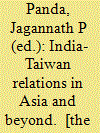

|
|
|
|
|
| Publication |
New Delhi, Pentagon Press (IDSA), 2016.
|
| Description |
xv, 120p.hbk
|
| Standard Number |
9788182749047
|
|
|
|
|
|
|
|
|
|
|
|
Copies: C:2/I:1,R:0,Q:0
Circulation
| Accession# | Call# | Current Location | Status | Policy | Location | IssuedTo | DueOn |
| 058662 | 327.51051249/PAN 058662 | Main | Issued | General | | A1676 | 22-Feb-2024 |
| 058663 | 327.51051249/PAN 058663 | Main | On Shelf | General | | | |
|
|
|
|
| 3 |
ID:
074263
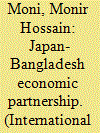

|
|
|
| 4 |
ID:
146300
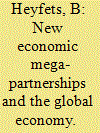

|
|
|
|
|
| Summary/Abstract |
ON FEBRUARY 4, 2016, in Auckland, heads of 12 Pacific Rim states signed a treaty on the Trans-Pacific Partnership (TPP), the first trans-regional mega-partnership, which will come into force in the next two years as soon as at least six countries, representing about 85% of the total GDP of the TPP, have ratified it.
|
|
|
|
|
|
|
|
|
|
|
|
|
|
|
|
| 5 |
ID:
131957


|
|
|
|
|
| Publication |
2014.
|
| Summary/Abstract |
Existing literature has long recognized that a partnership has been forged between the PRC government and Hong Kong's capitalist class. However, the implications of such a partnership for HKSAR governance have yet to be thoroughly explored. By examining the formation of this partnership and its consolidation after 1997, this article argues that the business sector's direct access to the sovereign state has fundamentally changed the dynamics of state-business relations in the HKSAR. As a consequence of the partnership between Beijing and the business sector, business elites have taken their concerns straight to the mainland authorities whenever they see their interests affected by the post-colonial state. This kind of circumvention has become a part of post-1997 politics, undermining the relative autonomy of the post-colonial state and resulting in growing cleavages within the state-business alliance during the first 15 years of the HKSAR. Whether and how such a partnership will evolve in the aftermath of the 2012 chief executive election remains to be seen.
|
|
|
|
|
|
|
|
|
|
|
|
|
|
|
|
| 6 |
ID:
131956
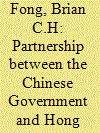

|
|
|
|
|
| Summary/Abstract |
Existing literature has long recognized that a partnership has been forged between the PRC government and Hong Kong's capitalist class. However, the implications of such a partnership for HKSAR governance have yet to be thoroughly explored. By examining the formation of this partnership and its consolidation after 1997, this article argues that the business sector's direct access to the sovereign state has fundamentally changed the dynamics of state-business relations in the HKSAR. As a consequence of the partnership between Beijing and the business sector, business elites have taken their concerns straight to the mainland authorities whenever they see their interests affected by the post-colonial state. This kind of circumvention has become a part of post-1997 politics, undermining the relative autonomy of the post-colonial state and resulting in growing cleavages within the state-business alliance during the first 15 years of the HKSAR. Whether and how such a partnership will evolve in the aftermath of the 2012 chief executive election remains to be seen.
|
|
|
|
|
|
|
|
|
|
|
|
|
|
|
|
| 7 |
ID:
138083
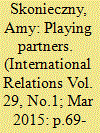

|
|
|
|
|
| Summary/Abstract |
In this article, I argue that seemingly ‘un-noteworthy’ interactions between states can demonstrate the significance of language for social relationships and foreign policy partnerships. Using language game analysis, I apply Peter Howard’s four-stage model to the case of the US–Turkish Economic Partnership Commission’s proposal for qualified industrial zones shortly after 9/11 and examine how the expectations for enhancing partnership are shaped and at times dashed through the language used among a network of actors. A language game analysis provides an explanation for how actors’ expectations rise and fall and provides an understanding of the maintenance, enhancement, and dismantling of state relationships in a social and practice-centered context. I utilize author interview data as well as texts from newspapers, speeches, and organizations to show how partnership between allies is vulnerable to social expectations signaled in and through the common language they both hold.
|
|
|
|
|
|
|
|
|
|
|
|
|
|
|
|
| 8 |
ID:
064720
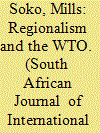

|
|
|
|
|
| Publication |
Winter/Spring 2004.
|
|
|
|
|
|
|
|
|
|
|
|
|
|
|
|
| 9 |
ID:
170640
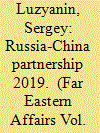

|
|
|
|
|
| Summary/Abstract |
This paper analyzes the key trends in the development of the Russia-China strategic partnership at the current stage. Particular attention is paid to the military-political cooperation of the two countries amid a worsening international situation and mounting US pressure on Russia and China. The author highlights the specific features of Russian-Chinese interaction in Eurasia and other parts of the world, and gives recommendations for furthering Russia-China strategic and economic partnership.
|
|
|
|
|
|
|
|
|
|
|
|
|
|
|
|
| 10 |
ID:
130284
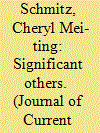

|
|
|
|
|
| Publication |
2014.
|
| Summary/Abstract |
The sense of mystery around Chinese presences in Angola impels researchers to understand not only the empirical details of economic transactions and diplomatic partnerships but also the various ways in which the actors involved make sense of a novel social, political, and economic configuration. By drawing several ethnographic portraits of the social practices and discursive strategies at play in Chinese-Angolan relations, I show how, in a context of mutual uncertainty and suspicion, appeals to "security" play a central role. Instead of viewing Chinese and Angolans as two separate groups with opposed interests and lack of communication between them, I explore how participation in a shared context generates common modes of explanation. Moreover, I propose a parallel analysis of state-level negotiations alongside everyday social encounters to consider how a political economic partnership between China and Angola is lived through the everyday negotiations of Chinese and Angolan residents in Luanda.
|
|
|
|
|
|
|
|
|
|
|
|
|
|
|
|
| 11 |
ID:
171245
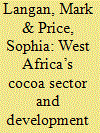

|
|
|
|
|
| Summary/Abstract |
The EU is vigorously pursuing Economic Partnership Agreements (EPAs) in its trade and aid relations with African, Caribbean and Pacific (ACP) countries. Justifying the EPAs as being ‘development friendly’, EU officials promise that aid support to private sector development (PSD) in ACP countries will make free trade systems ‘win–win’. This article, based on the authors’ semi-structured interviews conducted in Ghana and Nigeria, examines the perspectives of cocoa stakeholders vis-à-vis EPAs and PSD. Applying critical discourse analysis to interview transcripts, it underscores areas of overlap and, crucially, divergence among cocoa stakeholders’ own narratives on PSD support in the context of EPAs and the official legitimating discourse of EU institutions. In the process, the article draws critical attention to cocoa business interviewees’ concerns regarding the impact of premature trade liberalisation. It also underscores cocoa stakeholders’ concerns that EU PSD promises are not being fulfilled in terms of actual tangible benefits for business people in this vital ACP export sector. Accordingly, the article contributes to, and corroborates, an existing critical scholarly literature which problematises the strategic functions of donor PSD discourse in presenting free trade reforms as being ‘pro-poor’ in the post-Washington Consensus.
|
|
|
|
|
|
|
|
|
|
|
|
|
|
|
|
|
|
|
|
|